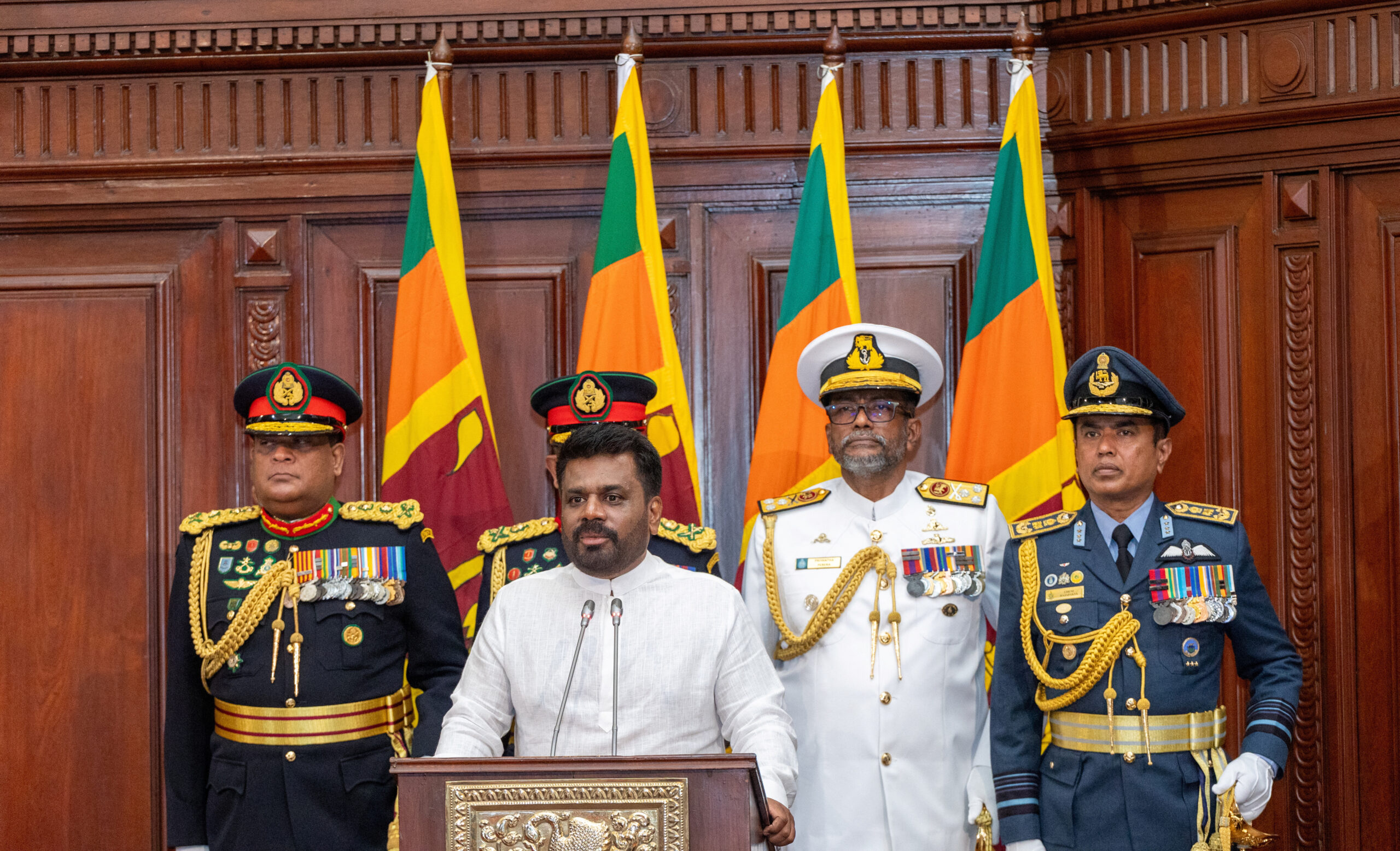
Anura Kumara Dissanayake, the country’s next president, promises reform
Anura Kumara Dissanayake, the leftist leader of Sri Lanka, became president on Monday. She promised change in the island nation that has been run by strong political families for a long time and is coming out of its worst economic crisis in more than 70 years.
A lot of people in Sri Lanka voted for the opposition politician because they believed he would fight corruption and help the economy get back on its feet.
“I pledge… to demonstrate dedication to protecting and upholding democracy,” Dissanayake, 55, said at the president’s office during his inauguration. He also said that he was taking office at a difficult time in the Indian Ocean nation.
“Our politics needs to be cleaner, and the people have called for a different political culture,” he said. “I am ready to commit to that change.”
Dissanayake ran as a candidate for the National People’s Power (NPP) union, which includes his own Janatha Vimukhti Peremuna (JVP) party. The JVP has a history of supporting Marxist economic policies that focus on protectionism and government involvement in the economy.
The party has become more moderate over the past few years.
Outside, dozens of his fans held up posters with his picture on them. Some waved the Sri Lankan flag and chanted “AKD,” which are the initials of the new president, who takes over from Ranil Wickremesinghe, a veteran politician.
Iroma Nilanthi Liyanage, a beautician, said, “I’m very happy.” She also said that Dissanayake gave his fans hope. “This win was earned with a lot of hard work. The poor finally have someone to look out for them.
He now has to put together a new government and try to get parliament to pass a budget as part of a $2.9-billion bailout from the International Monetary Fund (IMF). His party only has three of the 225 seats in parliament.
THE DEBT DEAL WAS FINISHED LAST WEEK
This was Sri Lanka’s first election since its economy collapsed in 2022 due to a serious lack of foreign exchange, making it impossible to pay for imports of basic goods like medicine, cooking gas, and fuel. President Gotabaya Rajapaksa had to leave the country because of protests and later resigned.
Prime Minister Dinesh Gunawardena quit on Monday so that a new prime minister and cabinet could take over.
Gunawardena, who is 75 years old, became prime minister in July 2022 after Rajapaksa left and quit because of the crisis, which led to protests and a default on the country’s debt.
Late on Sunday night, Dissanayake was named president, replacing Wickremesinghe, who had been chosen by parliament to finish out Rajapaksa’s term.
Dissanayake, who is better known as AKD, got 1.27 million more votes than his closest rival and major opposition leader, Sajith Premadasa. Third place went to Wickremesinghe.
In early trade on Monday, Sri Lanka’s national dollar bonds lost 2.88 to 3.28 cents on the dollar, trading between 49.14 and 49.77 cents.
Investors are concerned that Dissanayake’s desire to review the terms of the country’s IMF bailout could cause delays in future payments and that he might try to renegotiate a debt deal with investors that was agreed upon last week.
Close neighbors of Sri Lanka, including India, Pakistan, and the Maldives, congratulated Dissanayake on his win. China, which owes Sri Lanka the most money, also sent its best wishes.
The Chinese foreign ministry said on Monday that China hopes Sri Lanka will continue to grow and keep its country stable. “China is ready to play a constructive role in the smooth economic and social development,” the spokesperson said.
The spokesperson wouldn’t say more about the possibility that Sri Lanka would want to revisit the debt agreements it made with Beijing, but they did say that China wanted to work with Sri Lanka to speed up high-quality growth on the Belt and Road.
All Categories
Recent Posts
Tags
+13162306000
zoneyetu@yahoo.com



